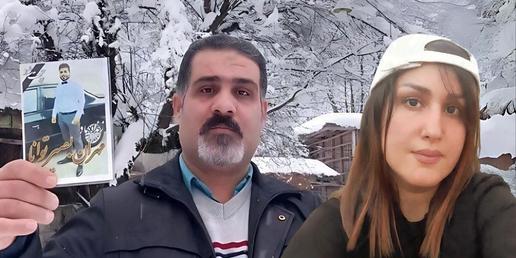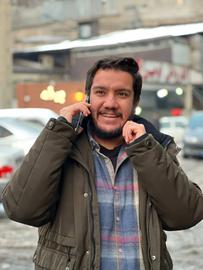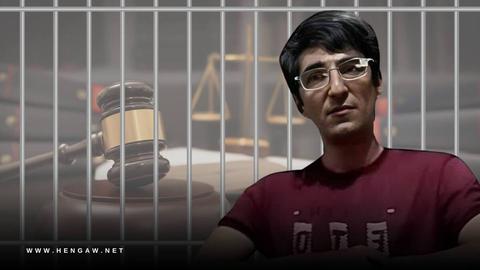The Iranian authorities’ “brutal repression” of peaceful dissent continues unabated one year after nationwide protests sparked by Mahsa Amini’s death in September 2022, Human Rights Watch (HRW) says.
The authorities have also “consolidated their efforts to increase punitive measures” against women who refuse to wear the mandatory headscarf in public spaces, the New York-based group said in a statement on January 11 accompanying the release of its annual review of human rights around the globe.
“For many, everyday life in Iran feels like a battle with a corrupt, autocratic government that has brought down the full force of its repressive machinery to quash dissent,” said Michael Page, Middle East deputy director.
“Iranian authorities should know that anything short of fundamental change will only deepen public anger and frustration against their mismanagement and brutality.”
The Islamic Republic cracked down hard on the monthslong protests sparked by Amini’s death while she was in police custody for an alleged hijab violation.
More than 500 people were killed and over 22,000 others were unlawfully detained in the clampdown, activists say.
Following grossly unfair trials, 25 death sentences were issued in connection to the protests, HRW said. At least eight protesters have been executed so far.
“The authorities have refused to open transparent investigations into security forces’ use of excessive and lethal force, torture, sexual assault, and other serious abuses, and have instead pressured families of victims to not hold public memorial services,” HRW said.
“Scores of human rights defenders, journalists, members of ethnic and religious minorities, and dissidents are serving lengthy sentences after being convicted of national security charges in grossly unfair trials,” it added. “Detained protesters have died in suspicious circumstances.”
Ahead of the protest anniversary, the authorities increased their crackdown on dissent through “intimidation, arrests, prosecutions, and trials of activists, artists, dissidents, lawyers, academics, students, and family members” of those killed during the 2022 protests, according to the group.
The authorities also prosecuted women and girls who refuse to wear a headscarf in public, issued traffic citations for passengers without a head covering, and closed businesses that do not enforce the Islamic Republic’s strict dress code on their premises.
In September last year, parliament approved a draft Hijab and Chastity bill proposing increased prison terms up to 10 years for expressing opposition to hijab regulations, as well as restrictions on job and educational opportunities for violators.
HRW also said it had documented “far harsher use of repressive tactics, including arbitrary arrests and excessive use of force,” in ethnic and religious minority areas of Kurdistan province and Sistan and Baluchistan province, which it said have played leading roles during the 2022 protests.
visit the accountability section
In this section of Iran Wire, you can contact the officials and launch your campaign for various problems


























comments